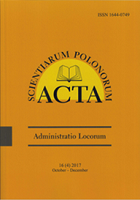Illegal domestic tourism of Poles during the COVID-19 pandemic – introduction to the research
Illegal domestic tourism of Poles during the COVID-19 pandemic – introduction to the research
Author(s): Magdalena Kugiejko, Artur ŻytoSubject(s): National Economy, Criminology, Health and medicine and law, Tourism
Published by: Wydawnictwo Uniwersytetu Warmińsko-Mazurskiego w Olsztynie
Keywords: pandemic; COVID-19; tourist behavior; domestic tourism; Poland;
Summary/Abstract: Motives: Tourism is one of the most affected industries by the COVID-19 pandemic. The restrictions introduced by the Polish government, dictated by the rapidly increasing number of positive cases in the country, led to severe restrictions or complete cessation of the accommodation, catering and tourist services. These restrictions resulted in greater interest in the “little homeland” tourist offer, the dispersion of tourist traffic and the development of so called “grey zone” through unofficial functioning of accommodation facilities. Aim: The purpose of this paper is to characterize the profile of tourists who paid for the accommodation services in Poland during the second wave of the pandemic, lasting from 7th November 2020 to 11th February 2021. The research methodology included a diagnostic survey conducted through the use of a digital questionnaire circulated in social media. In total 100 responses were subjected to qualitative analysis. On the basis of the obtained results, the authors analyzed the following criteria: the number, time, place, length and method of organization of trips; type of accommodation with the costs estimate and the method of obtaining information about the functioning of the chosen facility; means of transportation to the destination, main and secondary travel motives. The study also presents the changes declared by the respondents in the frequency of organizing a one-day trip and several-day-long trips away from the place of their daily residence, as well as the assessment of the quality of the services provided against the price. Results: Almost 70% of the respondents paid for the accommodation services in the given time frame at least once, mainly booking private lodging using Booking.com portal. The organized trips were usually short-term and lasted 3 days. Only every 5th trip was planned in advance, before the restrictions were introduced. The main motive for the trip was the desire to change the environment, understood as escaping the city and relaxing outdoors. The vast majority of respondents did not suffer from COVID-19 before the trip, and every fourth respondent considered the applicable restrictions as too severe.
Journal: Acta Scientiarum Polonorum Administratio Locorum
- Issue Year: 21/2022
- Issue No: 1
- Page Range: 125-138
- Page Count: 14
- Language: English

